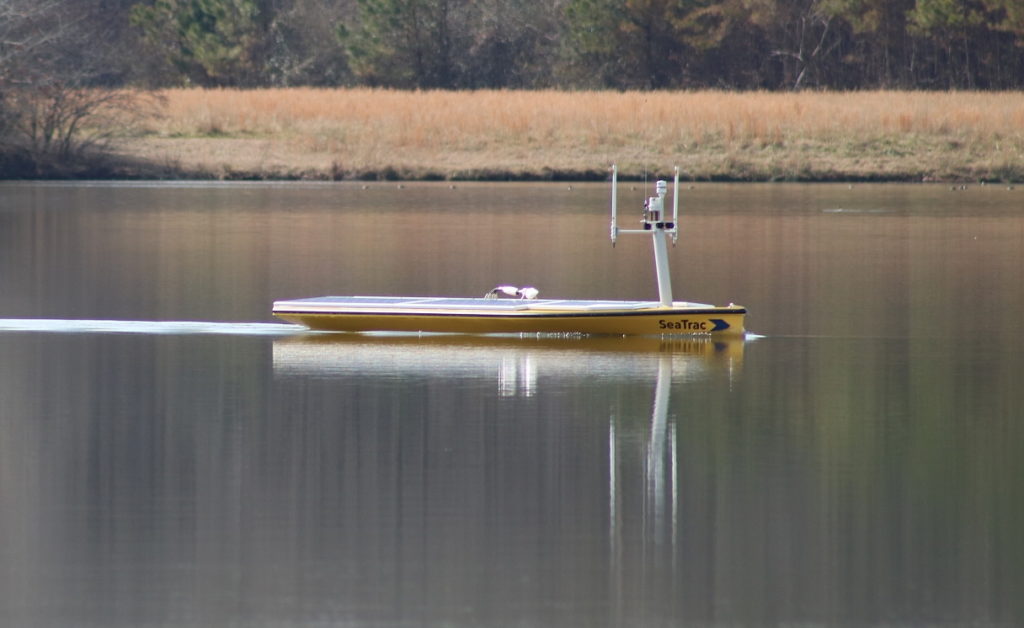SeaTrac Systems USV Selected by GRI for Real-time Water Quality and Threat Assessment of Navigable Waterways in the Gulf
April 8, 2021 SeaTrac Systems has provided one of its SP-48 unmanned surface vessels (USVs) to a team at Mississippi State University's (MSU) Geosystems Research Institute (GRI). The vessel will be used to support a research study, funded by the Army Corps of Engineers, into real-time water quality monitoring and threat assessment of navigable waterways of the Gulf of Mexico region. GRI operates an extensive research and transition program that aims to raise awareness and understanding of the Gulf region.
SeaTrac Systems has provided one of its SP-48 unmanned surface vessels (USVs) to a team at Mississippi State University's (MSU) Geosystems Research Institute (GRI). The vessel will be used to support a research study, funded by the Army Corps of Engineers, into real-time water quality monitoring and threat assessment of navigable waterways of the Gulf of Mexico region. GRI operates an extensive research and transition program that aims to raise awareness and understanding of the Gulf region.The SeaTrac SP-48 was selected due to its ease of use and ability to navigate through a variety of waterways, as well as the system's available power, which can support a variety of payloads during long-duration missions. GRI's custom payload array includes a Pro Oceanus CO2-Pro CV sensor, a Seabird SBE 63 dissolved oxygen sensor, three Seabird ECO Triplets, an AML CT sensor and an AML pH sensor.
The SP-48 is designed for users who require a flexible data gathering and communications platform that can be adapted to a wide variety of missions and payloads. The solar-powered, 4.8m-long vessel is a low-logistic, sensor-agnostic persistent USV with Automatic Identification System (AIS) collision avoidance, a speed of 5kts, 500W payload power, and 70kg payload capacity that can be equipped with a range of sensors for the collection and communication of real-time ocean data over long durations.
Built to operate in all marine environments, including inland, near shore and open ocean, the SP-48 has a self-righting hull and efficient electric motor that frees it from reliance on wind or waves for propulsion. It is easily deployed from a boat ramp, pier or ship. Communications is achieved by line-of-sight Radio Frequency (RF), cellular, high-bandwidth satellite or custom networks.
Robert Moorhead III, Director of GRI, commented, "The team at SeaTrac is first rate; they can integrate anything and have been a pleasure to work with, pushing the envelope to fit into their boat all of our complex demands. Because of its versatility, we plan on deploying the SP-48 in a number of our waterways, ranging from very shallow waterbodies to the open ocean in the Gulf."
Buddy Duncan, co-founder of SeaTrac Systems, said, "Increasingly customers' missions have grown in complexity requiring a range of sensors, and they're looking for less costly, less resource-intensive and more flexible solutions to carry out a variety of tasks simultaneously in challenging marine environments. We are pleased to help the MSU team achieve its real-time monitoring and data-collecting goals."
